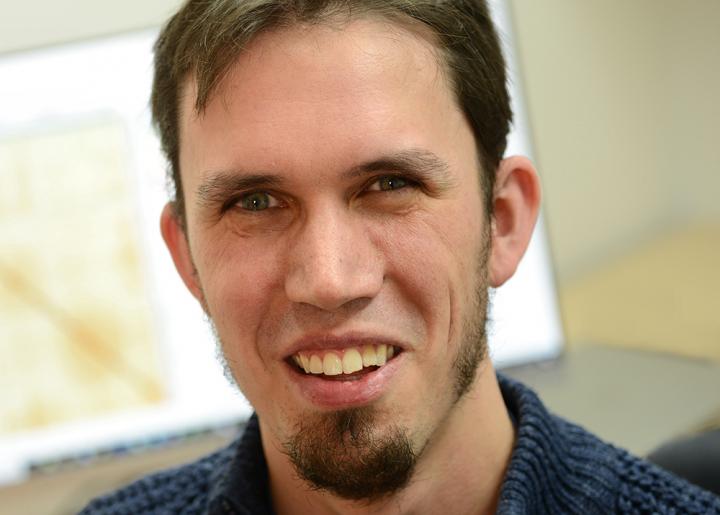Dr Diego Robledo on disease resistance in fish
Disease resistance in salmon, its implications for fish farmers in Scotland, and not losing touch with nature.

Dr Diego Robledo is a Career Track Fellow at the Roslin Institute. In this interview, he tells MSc Science Communication student Anna Purdue about his aquaculture research and his experience so far working here at the Institute.
Could you tell me a little bit about your work?
I work with aquaculture, which is an area involving many different species of fish and shellfish, but I mostly work with salmon here in Scotland.
My work focuses on resistance to diseases. We try to do two things here. One of these is to improve the selection process of resistant animals. We essentially have to determine which animals are resistant and which ones are not, so that breeders can take informed decisions. The second part of our work is about trying to actually understand this resistance, asking why some of the animals are resistant.
Why did you decide to become a scientist and why this particular field of research?
I wanted to be a computer scientist for much of my childhood; that was my main goal for a long time. However in my last year of high school I decided that I wanted to learn more about biology and was also curious about genetics.
I guess my love for animals also helped – when I travel to different places around the world, I always try to go to places where I can interact with different animals.
I did not completely give up computers, since I ended up becoming a bioinformatician, which combines computer science and biology!
How is your work applied in the ‘real world’?
The work I do here is very applicable in the real world. We help select the animals that are more resistant to diseases for breeding. This results in each generation of fish being more and more resistant to important diseases.
This is great for farmers – the process is important in maintaining and improving their livelihoods, but it is also great for the welfare of the animals.
Why did you decide to work at the Roslin Institute and what do you like most about working here?
I came to the UK because my partner was living in Durham, England. My former supervisor in Spain knew Professor Ross Houston here at the Roslin Institute, who accepted me for an internship. We got on well and worked well together, so I decided to come back for my postdoc.
The thing I most enjoy about coming to work is that I really have fun here. It is a really friendly atmosphere and we have a very nice group of people. They are more like friends than co-workers. That’s the most important thing.
What kind of challenges have you experienced as a scientist?
I started working as a Roslin Fellow in February 2019, so I have been here in this position for a year now and I think that first year was all about getting organised. It was quite tricky to deal with all the obligations of my previous position as a postdoc, trying to finish most of the work (which in some ways I am still trying to do!) while taking more of a group leader role – managing a research group, applying for grants, etc. I think I am getting a bit better at it, but in the beginning it was relatively stressful.
What would you be doing if you hadn’t become a scientist?
I would still like to have a job related to biology, but perhaps somewhere where I would be working closer to the animals themselves. Perhaps I would like to be like David Attenborough, travelling around the world and working closely with animals. Or maybe work in an animal sanctuary, with gorillas in Africa or in the Galapagos Islands. Or work in a dog shelter. I’d like to be doing anything that involves daily contact with animals, really.
Relevant links
Professor Ross Houston on aquaculture genetics
Aquaculture genetics consortium set to tackle industry challenges


